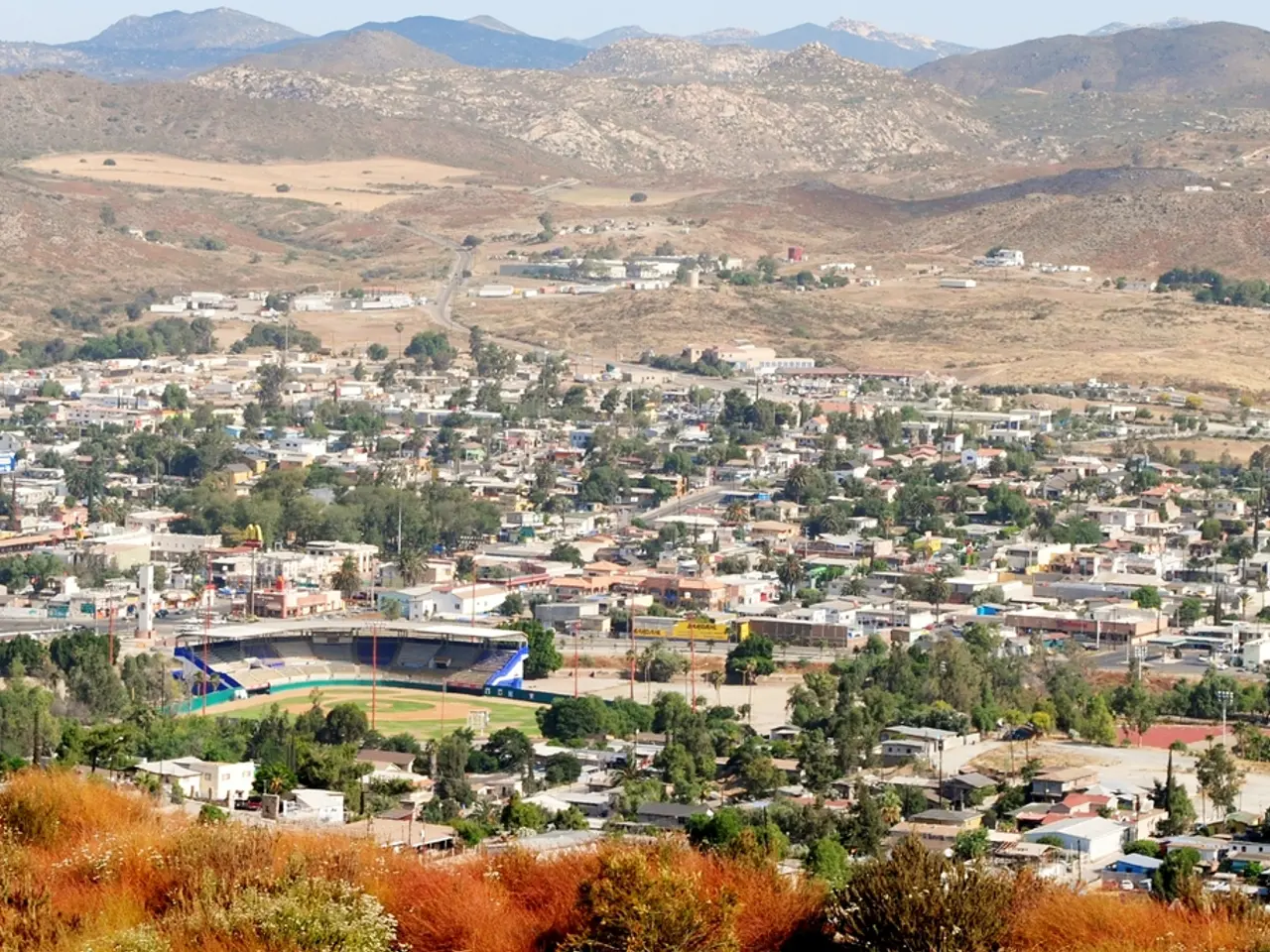Transport Minister Advocates for More Aid in North Baltic Sea Waterway Expansion
In a recent visit to the Nord-Ostsee-Kanal construction site, Bernd Buchholz, the Minister of Economy, expressed his support for the ongoing projects. However, during his visit, he did not discuss the specific significance of individual construction projects, including the replacement of small locks in Kiel.
This visit comes amidst the context of the country's newly approved federal transport infrastructure budget for 2025-2029. The federal cabinet has allocated a substantial €7.6 billion specifically for inland waterways within the total transport budget of €166 billion for this period [1].
This significant increase in funding reflects a strong government commitment to the maintenance and rehabilitation of key infrastructure, including waterways, as part of its climate protection and sustainability goals [1]. The priority remains on maintenance and rehabilitation before new construction projects proceed, ensuring existing waterways infrastructure like small locks in Kiel is maintained or replaced to continue supporting environmentally friendly transport routes.
However, the federal budget for transport projects has gaps and fiscal challenges inherited from the provisional budget management clause used in 2025, which means no entirely new large projects without prior agreements are funded yet [2]. Despite this, existing commitments to maintain and improve waterways infrastructure remain prioritized due to their importance for climate-friendly transport.
Federal Minister of Transport Volker Wissing, who also visited the construction site on the eastern stretch of the Nord-Ostsee-Kanal, was briefed on the significance of the individual construction projects. Minister Wissing stated that the maintenance and expansion of waterways are an important contribution to climate protection.
Meanwhile, it is not clear if Bernd Buchholz was briefed on the status of the replacement of the small locks in Kiel. The replacement of these locks remains at risk due to a gap in the upcoming federal budget for transport projects.
Financial mechanisms like special infrastructure funds and increased private sector involvement are under consideration to ensure long-term, reliable financing of transport infrastructure, which could positively affect waterways projects in the medium term [4].
In summary, plans for replacing small locks in Kiel are likely focused on rehabilitation and phased replacement within the €7.6 billion allocated for waterways, aligned with climate protection objectives, under the current budget framework. There is no indication of immediate large-scale new lock construction beyond maintenance and modernization efforts at this time, due to existing budget gaps and provisional funding status [1][2].
Sources: [1] Bundesministerium für Digitales und Verkehr (2022). Bundesverkehrsinfrastrukturplan 2025-2029. Retrieved from https://bmvi.de/SharedDocs/DE/Artikel/DG/bvi-2025-2029.html [2] Bundesministerium für Digitales und Verkehr (2022). Provisorischer Haushalt 2025. Retrieved from https://bmvi.de/SharedDocs/DE/Artikel/DG/provisorischer-haushalt-2025.html [3] Bundesministerium für Wirtschaft und Klimaschutz (2022). Bundeshaushalt 2023. Retrieved from https://bmwi.de/Redaktion/DE/Home/bmwi-haushalt-2023.html [4] Bundesministerium für Wirtschaft und Klimaschutz (2022). Sonderfonds Infrastruktur. Retrieved from https://bmwi.de/Redaktion/DE/Home/sonderfonds-infrastruktur.html
- The federal budget allocated €7.6 billion for inland waterways, emphasizing climate protection and sustainability goals in the transport sector, which includes supporting environmentally friendly transportation and the maintenance of waterways infrastructure like small locks in Kiel.
- Financial mechanisms, such as special infrastructure funds and increased private sector involvement, are being considered to ensure long-term, reliable financing of transport infrastructure, which could benefit waterways projects like the replacement of small locks in Kiel in the future.
- The ongoing visit by ministers Bernd Buchholz and Volker Wissing to the Nord-Ostsee-Kanal construction site reflects the importance of climate-friendly transport infrastructure, with a focus on maintenance and rehabilitation over new construction projects due to budget constraints, aligning with the priorities of the climate-change, science, industry, finance, and environmental-science sectors.




